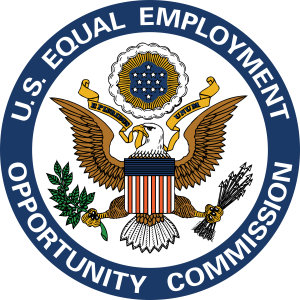Blog

What is Sexual Harassment?
Sexual harassment is defined as unwelcome sexual advances, requests for sexual favors and other verbal or physical conduct of a sexual nature when: (1) submission to such conduct is made a term or condition of employment; or (2) submission to or rejection of such conduct is used as a basis for employment decisions affecting the individual; or (3) such conduct has the purpose or effect of unreasonably interfering with an employee’s work performance creating an intimidating, hostile, or offensive working environment. Some examples of Sexual Harassment in Florida that are illegal may include but are not limited to the following:

2022 Super Lawyers Award
In Sexual Harassment claims in Florida, your chances of maximizing compensation are better when you’re represented by a lawyer who knows how to negotiate claims with your best interest in mind. That’s how attorneys make a difference. Our clients have gotten bigger financial recoveries because we combine passion with experienced-based strategy… and that’s how Ronald W. Fraley of The Fraley Law Firm became one of the few Sexual Harassment and Employment Retaliation lawyers recognized by the Super Lawyers program. Sexual harassment is conduct in the workplace that makes your sex a factor. Employment Retaliation occurs when an employee is punished

EEOC Florida FAQ
The EEOC (Equal Employment Opportunity Commission) The Equal Employment Opportunity Commission (EEOC) is an agency that enforces the laws against workplace discrimination, including laws against Sexual Harassment and Retaliation in Florida. The EEOC investigates claims of discrimination, Sexual Harassment and Retaliation in Florida. Before The Fraley Law Firm, P.A. can file a claim, you must first file a Charge of Discrimination with the EEOC. After a certain period of time, the EEOC will issue a Right to Sue letter that will allow The Fraley Law Firm, P.A. to file your claim in court. You must file with the EEOC within 180 days

Whistleblower Law in Florida
The people of the United States have decided that we should not lose our livelihoods, careers and right to support our families because someone has exposed wrongdoing, fraud or waste at work. Corporate misconduct costs taxpayers and citizens billions of dollars per year. Because it could happen to anyone who is employed, the Whistleblower laws protect the safety, security and health of your family and all members of our community in their employment, civil rights and as taxpayers and citizens. Who is a Whistleblower? Whistleblowers are people, often employees or former employees, who report illegal or fraudulent activity by an

What are the types of Sexual Harassment?
Sexual harassment is any conduct in the workplace that makes sex an unnecessary and unwanted part of the workplace environment. There are two basic types of sex harassment: First, Quid pro quo. Quite literally, quid pro quo means something for something. In situations involving this type of harassment, an employee is forced or urged to choose to submit to the sexual demands of a superior, or face adverse consequences (e.g., getting fired, losing pay, being refused a promotion) The second type is a Sexually Hostile Work Environment, where the sexual harassment involves sexual comments, touching, requests for a relationship, unwanted sexual texts, and

What is a Pattern of Sexual Harassment?
A pattern of Sexual Harassment is conduct that causes discomfort or humiliation to a reasonable person at whom the conduct was directed and that includes one or more of the following: unnecessary touching, patting, hugging, or brushing against a person’s body; remarks of a sexual nature about a person’s clothing or body; or remarks about sexual activity or speculations about previous sexual experiences; expressions of sexual interest after being informed that the interest is unwelcome. It is also illegal Sexual Harassment to Engage in explicit or implicit coercive sexual behavior within the work environment which is used to control, influence

Definition of Sexual Harassment in Florida
The work environment cannot be intimidating because of sexual issues. Corporations may not make distinctions between men and women. Florida and Federal law prohibit sexual harassment as a form of sex discrimination. The law applies to employers with 15 or more employees, including state and local governments. Sexual harassment is defined as unwelcome sexual advances, requests for sexual favors and other verbal or physical conduct of a sexual nature when: 1. Submission to such conduct is made a term or condition of employment. 2. Submission to or rejection of such conduct is used as a basis for employment decisions affecting the individual. 3. Such

Sexual Harassment in the Workplace
American families and individuals support themselves, obtain health coverage and achieve a sense of dignity and accomplishment from working. Unlike our private lives, we do not get to pick who we work with. As a result, in the United States, people at work are not allowed to interfere with our jobs or our ability to earn a living. There are Community Security Rules that protect all of us, including you, your families and children. Thus sexual harassment is illegal under the Federal law, Title VII of the Civil Rights Act of 1964, and under Florida law, Chapter 760.10 et seq., Sexual harassment

I Slept with the Boss to Keep My Job. Is this Sexual Harassment?
Americans support their families, secure their future and achieve a sense of dignity through their work. In our country no one is permitted to manipulate our jobs or careers. But it is a reality of the workplace that a few people have power over the majority of workers. These few often have the power to fire at will and end careers. Therefore, the law prohibits people in power, whether the CEO, an officer, a manager or supervisor from manipulating, directly or indirectly, an employee into sexual relations. Over the years, many more women have entered the workforce making them more

What is Sexual Harassment Retaliation?
Under the federal law, Title VII and Florida law, an employer is prohibited from taking or allowing an “adverse employment action” against an employee because he or she has challenged or opposed a discriminatory employment practice, or because she has filed an EEOC charge, testified, assisted or participated in any manner in opposing a discriminatory action. Corporate Employers must ensure that employees are not subjected to sexual harassment or other forms of illegal discrimination. Employers must protect employees from retaliation (i.e., punishment) who report possible sexual harassment or discrimination. What is an “adverse” employment action? Certain employer actions – such

